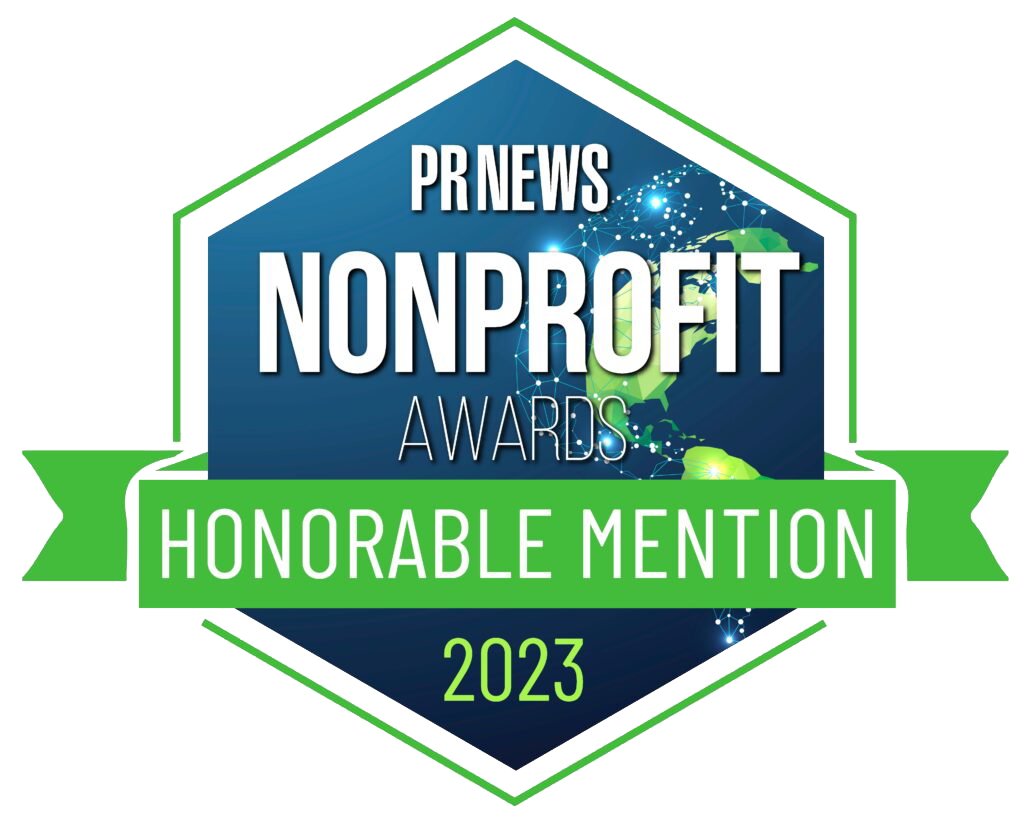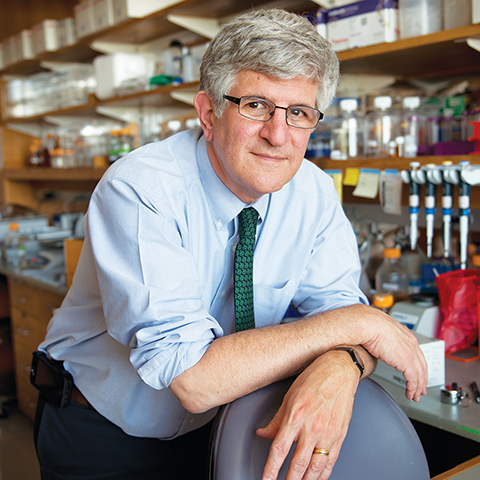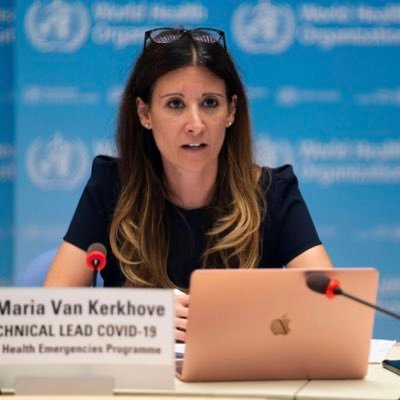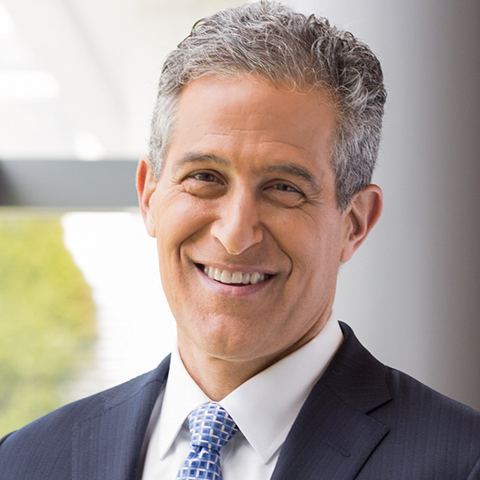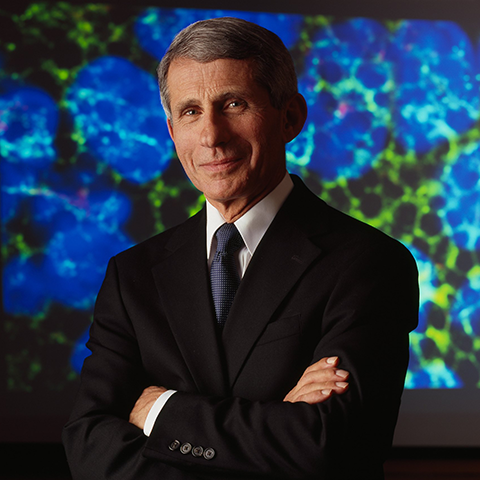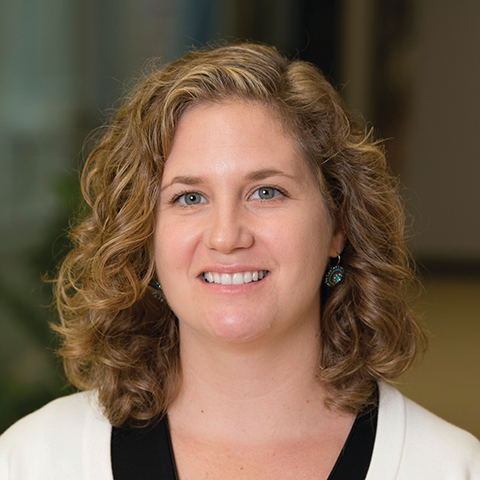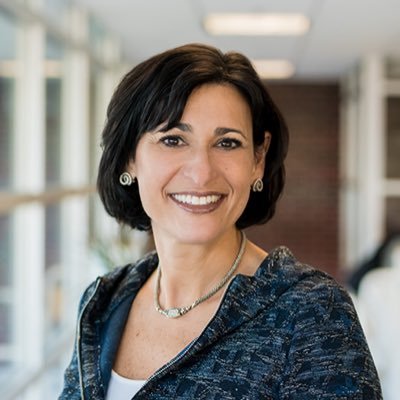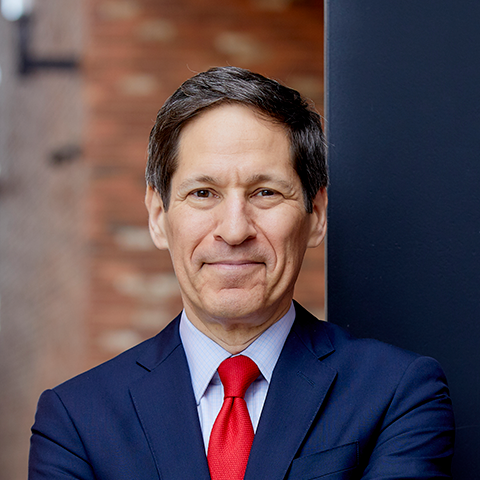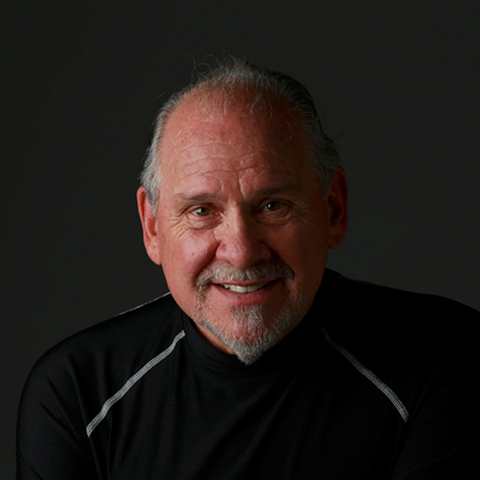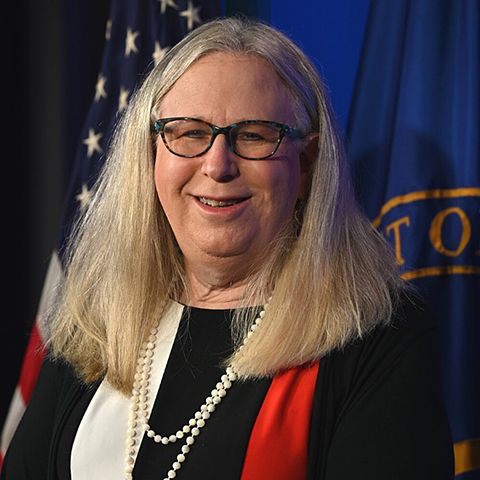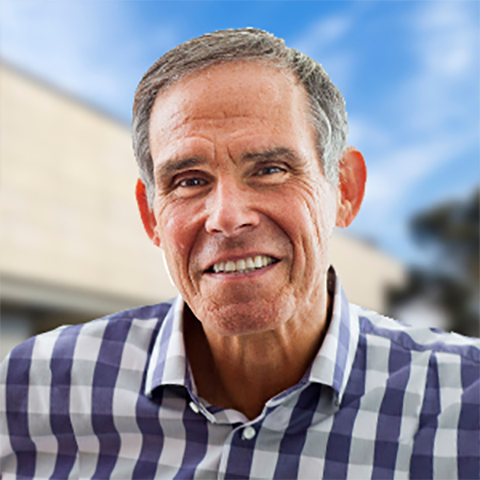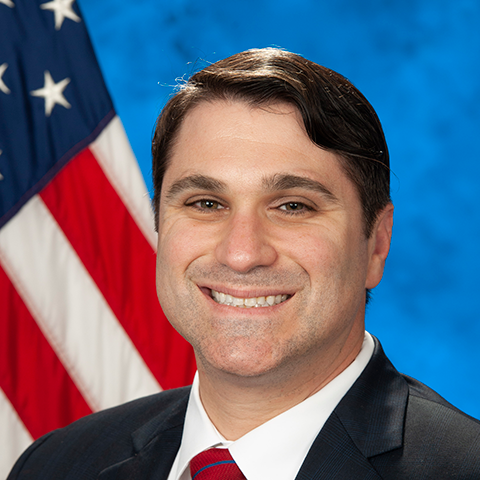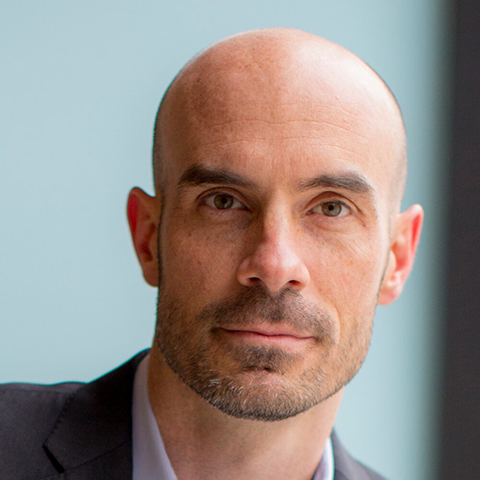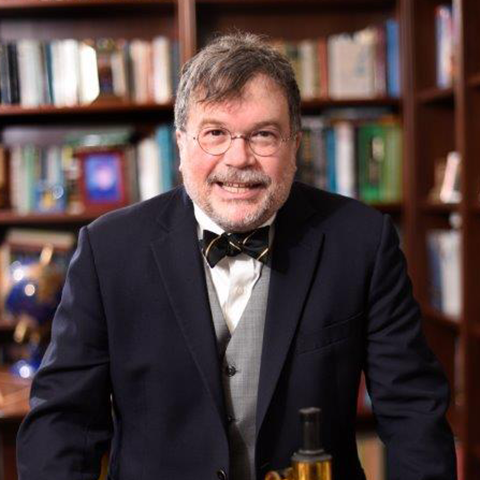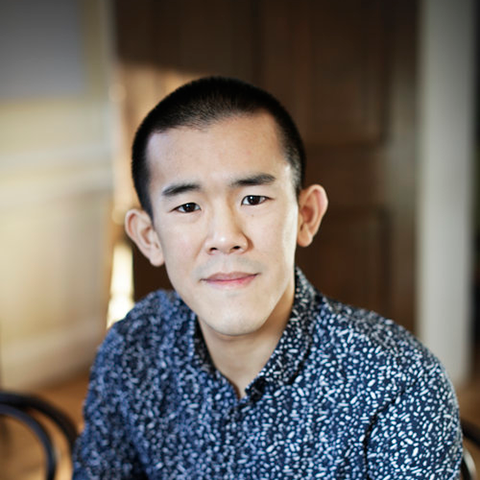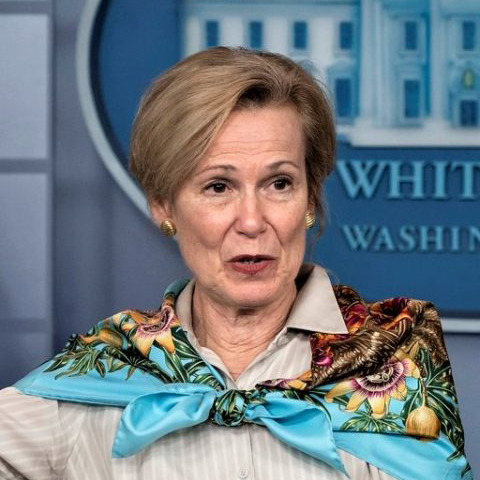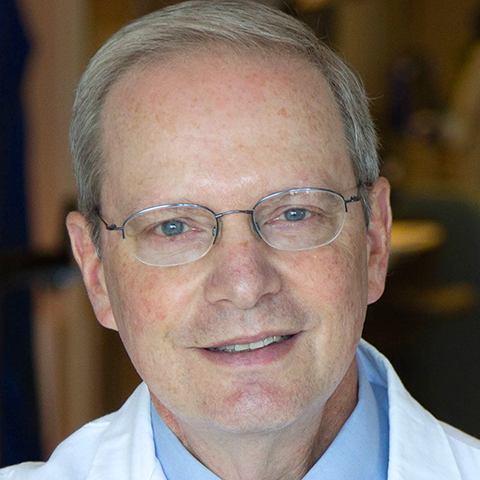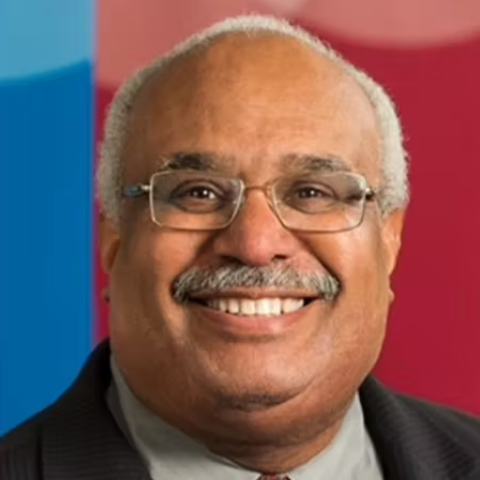THURSDAY, MARCH 9, 2023
Long COVID: Skeptics Are Wrong, Researchers Say
Yale University researcher Akiko Iwasaki, Ph.D., says immune profiling shows how Long COVID patients have distinct features not found in control groups. These patients, who also exhibit elevated levels of exhausted T-cells, cause her to express surprise at skeptics.Iwasaki joins Fiona Lowenstein, editor of “The Long COVID Survival Guide,” to discuss patients who say they’re suffering from Long COVID for as much as two years after their acute phase of the disease.Iwasaki also explains why her lab’s effort to move forward with a COVID nasal spray faces financial hurdles.Listen in to this important conversation with hosts Mark Masselli and Margaret Flinter.THURSDAY, FEBRUARY 2, 2023
FDA Advisor Dr. Offit’s Latest Findings on COVID Vaccine & Young Children
FDA vaccine advisor Dr. Paul Offit’s recent article in JAMA Pediatrics looks at the millions of 5- to 11-year-old children who received the COVID vaccine. His in-depth research review found that the mRNA vaccine was effective at preventing COVID, symptomatic infection, hospitalization, and multisystem inflammatory syndrome in children. The vaccine was also safe; myocarditis occurred in very rare cases. Dr. Offit joins hosts Mark Masselli and Margaret Flinter to discuss his findings and why he supports the end of the public health emergency.TUESDAY, JANUARY 17, 2023
WHO: What China Must Do Now to Help Fight COVID
A top World Health Organization public health official is adding nuance to the agency’s call for more transparency from China, which is coping with a crippling COVID-19 outbreak since it ended its zero-COVID policy last month.Maria Van Kerkhove, Ph.D., WHO Technical Lead for COVID-19 Response, tells “Conversations on Health Care” that “We really need better understanding on the burden and the hospitalizations and we need more information on the sequences…they have detected known sub-variances…but we need those sequences to be shared publicly. We want China to work with us to really determine within those sublineages…is there anything else within those sequences that’s different. And we need a global community to look at that. And work directly with us to do a full risk assessment.“Right now they’re going through a massive wave of Omicron. This virus, as transmissible as it is, is passing through the population. They are sharing information. It’s just not enough. It’s just not as detailed as we’d like.” Van Kerkhove joins hosts Mark Masselli and Margaret Flinter to share her insights.THURSDAY, JANUARY 12, 2023
Former CDC Chief Questions U.S Reaction to Chinese COVID Outbreak
Dr. Richard Besser, who once led the Centers for Disease Control and Prevention, doesn’t believe the recently enacted U.S. COVID testing requirement for anyone arriving from China will have much of an impact. Besser, who is currently president and CEO of the Robert Wood Johnson Foundation, says he feels such actions are often “more for show than truly for controlling a public health threat” and recalls that 14 years ago possible border closings during the H1N1 outbreak were seen as ineffective. Besser joins hosts Mark Masselli and Margaret Flinter to share his insights about the XBB.1.5 Omicron Subvariant, ways to strengthen public health and the tripledemic threat (RSV, COVID and the flu).WEDNESDAY, DECEMBER 28, 2022
COVID’s 3rd Year: Experts Speak
We’re proud to have again served as a platform for trusted, informed experts during the third year of the pandemic. This week “Conversations on Health Care” looks back on some of the most insightful comments from doctors and scientists who are on the frontlines of fighting COVID. In addition to NIH’s Dr. Anthony Fauci we had as our guests Dr. Peter Hotez from Baylor College of Medicine, Dr. Zeke Emanuel at the University of Pennsylvania, Dr. Michael Osterholm from the University of Minnesota, Dr. Mary Bassett with the New York City Health Department and others. Listen in as hosts Mark Masselli and Margaret Flinter capture their insights about these extraordinary medical challenges.WEDNESDAY, DECEMBER 21, 2022
The Interview That Made News in ‘22: Fauci on COVID
In early November Dr. Anthony Fauci, director of the National Institute of Allergy and Infectious Diseases and chief medical advisor to President Biden, joined us with important pandemic details. It marked his 7th interview with us during his amazing tenure.His COVID comments on our program were picked up by ABC, NBC and many other news outlets and they’re still relevant right now as we face what he called “the emergence of sublineage variants of Omicron.”Listen in as Dr. Fauci shares his wisdom with hosts Mark Masselli and Margaret Flinter as he prepares to leave NIH after over 50 years of public service.THURSDAY, NOVEMBER 3, 2022
Dr. Fauci Prepares for His Next Steps; Offers Leadership Lessons to Younger Generation
Dr. Anthony Fauci, director of the National Institute of Allergy and Infectious Diseases and chief medical advisor to President Biden, tells “Conversations on Health Care” that he’s thinking about what occurs after he leaves his position at the end of the year. Fauci says he’s strictly adhering to ethical rules and not negotiating for any position until after he leaves the government but he broadly wants to utilize his 54 years of experience at the National Institutes of Health for writing, lecturing and serving in an advisory capacity to inspire the younger generation to pursue their interests in medicine, science and public health.Hosts Mark Masselli and Margaret Flinter note that this is Fauci’s fifth interview with them since the pandemic began and they again use the opportunity to ask him about the latest COVID details.THURSDAY, SEPTEMBER 29, 2022
How Will We Know When the Pandemic is Over? Brown Univ. Pandemic Center Director Explains
Dr. Jennifer Nuzzo leads the Pandemic Center at the Brown University School of Public Health; she was initially hired for the role by Dr. Ashish Jha, who is now the White House Coronavirus Response Coordinator. Dr. Nuzzo tells hosts Mark Masselli and Margaret Flinter that COVID remains a fairly significant health threat, especially in terms of possible variants, but we’re not in the same situation we were two years ago. She reacts to President Biden’s recent statements about the state of the pandemic and believes one way to assess its end is how people are living today.MONDAY, AUGUST 29, 2022
CDC Director Rochelle Walensky on COVID Fall Booster Details
CDC Director Dr. Rochelle Walensky and colleagues will soon review data for the new bivalent booster shot for COVID; she says it relates to very small changes in the mRNA sequence and that “shouldn’t impact safety at all…if we wait for those data to emerge in human data…not just mice data but human data…we would be using what I would consider to be a potentially outdated vaccine…it’s best to use a vaccine that’s tailored to the variant we have right now.” Still, Dr. Walensky urges anyone who’s eligible to get the current booster right now while the U.S. government reviews the bivalent research. She points out that most of the cases of severe disease and death from COVID are unvaccinated or under-vaccinated people. “We have now given over 600 million doses of this vaccine in this country so we have an extraordinary safety profile, probably unlike any we’ve seen with any vaccine in history.” Listen in to this important conversation with hosts Mark Masselli and Margaret Flinter.TUESDAY, AUGUST 23, 2022
Former CDC Director Dr. Frieden’s Thoughts on Dr. Fauci and His Next Chapter
Former Centers for Disease Control and Prevention director Dr. Tom Frieden shares his thoughts about the news Dr. Anthony Fauci will soon leave government service. Frieden explains how the next director of the National Institute of Allergy and Infectious Diseases will need to be realistic that he or she will have big shoes to fill.Frieden, who now leads the nonprofit Resolve to Save Lives, also tells hosts Mark Masselli and Margaret Flinter that he endorses an independent commission to review what happened during the COVID pandemic. He was interviewed as part of a CDC review and he lays out what must change in terms of its mission, approach and budget.TUESDAY, AUGUST 9. 2022
He Helped Eradicate Smallpox - Listen to His Concerns About Monkeypox
Renowned epidemiologist and innovator Dr. Larry Brilliant says we’ve entered an “age of pandemics” as the Biden administration declares the monkeypox outbreak a public health emergency.Dr. Brilliant is the chair of the advisory board of Ending Pandemics, a nonprofit working to find outbreaks faster around the world. His expertise is a result of his success in helping the World Health Organization eradicate smallpox in the 1970s.He also discusses with hosts Mark Masselli and Margaret Flinter the limits of the mRNA vaccines for COVID and why a nasal spray is needed.THURSDAY, AUGUST 4, 2022
Are Long Covid Patients Exaggerating? Biden Top Doctor Says No: “Long COVID is real”
U.S. health officials now estimate 7–23 million Americans have developed Long COVID, which can last weeks or months.Admiral Rachel L. Levine, MD, Assistant Secretary for Health, U.S. Department of Health and Human Services, joins “Conversations on Health Care” to push back against Long COVID doubters. She says, “We don’t know exactly what is causing Long COVID, it might not be one thing, but Long COVID is real and those patients need support and they need treatment. We want to emphasize that patients are not malingering but we don’t know exactly what causes it. It might be a chronic infection with COVID-19 or a chronic inflammatory response.”Admiral Levine is hopeful research will provide more answers for Long COVID and other conditions that are similar. She also discusses the latest on monkeypox, access to reproductive health and LGBTQ+ issues with hosts Mark Masselli and Margaret Flinter.THURSDAY, JULY 21, 2022
Dr. Eric Topol: COVID BA.5 variant "worst we've seen"
Dr. Eric Topol, one of the most prominent and prolific COVID experts, provides his thoughts on the COVID BA.5 subvariant. He says, “it’s the worst variant… [because of] the immune escape…the ability to have growth, fitness and advantages that we haven’t seen before…the properties are getting worse…and lasting longer. The virus has not finished its evolutionary arc. There’s more to come, unfortunately.”Conversations on Health Care hosts Mark Masselli and Margaret Flinter also talk to Dr. Topol about Dr. Anthony Fauci’s legacy, Paxlovid resistance and monkeypox.THURSDAY, JULY 14, 2022
How VA Innovation Affects the Entire Health Care System
The U.S. Dept. of Veterans Affairs operates the nation’s largest integrated health care system. But how much do you know about how well VA Medical Centers and clinics identify innovative therapies, practices and policies and then diffuse them across a large footprint? Ryan Vega, MD, MSHA, leads the Innovation Ecosystem within the Veterans Health Administration. This initiative focuses on being the catalyst for enabling the discovery and spread of mission-driven health care innovation to advance care delivery and service.Dr. Vega highlights point-of-care manufacturing and its 3D Printing Network that were essential during the early days of COVID and the VA’s history of deploying the first cardiac pacemaker.Conversations on Health Care hosts Mark Masselli and Margaret Flinter talk to Dr. Vega about these breakthroughs, how they help the entire health care sector and where the VA is partnering with Federally Qualified Health Centers.THURSDAY, JUNE 9, 2022
How Do We Make Healthy Buildings the Next Public Health Revolution?
Joseph Allen is the director of the Healthy Buildings Program at Harvard University’s T.H. Chan School of Public Health. As the co-author of “Healthy Buildings: How Indoor Spaces Drive Performance and Productivity,” his views are closely followed as we try to move quicker than COVID can spread. “Conversations on Health Care” co-hosts Mark Masselli and Margaret Flinter talk with Allen about new efforts to elevate the quality of indoor spaces in an overall health strategy.THURSDAY, JUNE 2, 2022
COVID Expert Dr. Hotez On His Own Positive Case: What He’s Learned
Dr. Peter Hotez, who helped develop a patent-free COVID-19 vaccine, has tested positive himself for a breakthrough strain of the virus. He explained to “Conversations on Health Care” that he’s doing “pretty well” and is confident that’s because he’s fully vaccinated and double-boosted. Dr. Hotez shared with hosts Mark Masselli and Margaret Flinter that he’d been taking the oral antiviral medication Paxlovid when the interview was recorded. He said it’s a good drug with solid evidence but also suggested that the amount of virus and its replication may ultimately require a longer course of treatment with Paxlovid; right now it’s only approved for five days. Dr. Hotez also addresses questions about rising cases, booster shots, the anti-science movement and other important issues.FRIDAY, MAY 6, 2022
Pulitzer Prize Winner Explains Why “There Is No Way of Getting the Risk of Future Pandemics…Down to Zero”
The Atlantic staff writer Ed Yong says the threat of future pandemics requires society to aggressively face and fix racial, economic and health disparities. The acclaimed journalist also explains how his reporting is showing big differences in how COVID is still affecting the U.S. — some communities are “cautiously optimistic” while others are “nearing…the height of the Omicron surge in terms of new admissions.” Conversations on Health Care hosts Mark Masselli and Margaret Flinter also talk with Yong about the need for the public health profession to have a strong politically- and socially-minded voice, as it did in its earlier days.WEDNESDAY, APRIL 27, 2022
Dr. Deborah Birx Reacts to Vice President Testing Positive for COVID; Criticizes Trump White House Pandemic Communications
Former White House Coronavirus Response Coordinator Dr. Deborah Birx shared her perspective about Vice President Kamala Harris testing positive for COVID with “Conversations on Health Care.” Birx says, “I think [the vice president’s diagnosis] illustrates our very dilemma right now. She was vaccinated, boostered and then reboosted just a month ago and I’m sure she will do incredibly well. She has access to all of the really critical therapeutics…people get infected despite full vaccinations and boosting.” Birx told hosts Mark Masselli and Margaret Flinter that the “mishandling of communications by the Trump White House caused significant issues on the ground no matter what state I went into and caused amazing confusion among the American people.” Birx answered questions as she talked about her new book “Silent Invasion: The Untold Story of the Trump Administration, Covid-19, and Preventing the Next Pandemic Before It's Too Late.”THURSDAY, APRIL 14, 2022
Reaction to Philadelphia’s New Mask Orders: “A Little Premature”
“It feels a little premature…I might have waited a little longer to see what happens.” That’s the reaction from COVID expert Dr. Robert Wachter to Philadelphia’s decision to again require people to wear masks indoors, including in schools and daycares. It’s the first major American city to take this step. Wachter is chair of the Department of Medicine, University of California San Francisco and a popular voice on Twitter. He also shares that policymakers, including those looking at renewing public transportation mask orders, must consider that the public is tired of wearing masks after over two years. Conversations on Health Care hosts Mark Masselli and Margaret Flinter’s full interview with Dr. Wachter is available now.

